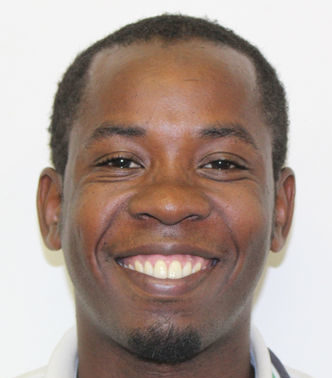I was born and raised in Pemba, the second largest island in the Zanzibar archipelago off the coast of Tanzania. Growing up in Pemba, I witnessed the vast economic, health, and social issues that affect the island. Poverty and unemployment are prevalent; difficulty in accessing health facilities leads to challenges in maternal and newborn health resulting in high maternal mortality; and the widespread belief that health facilities offer poor quality service leads to low clinic attendance.
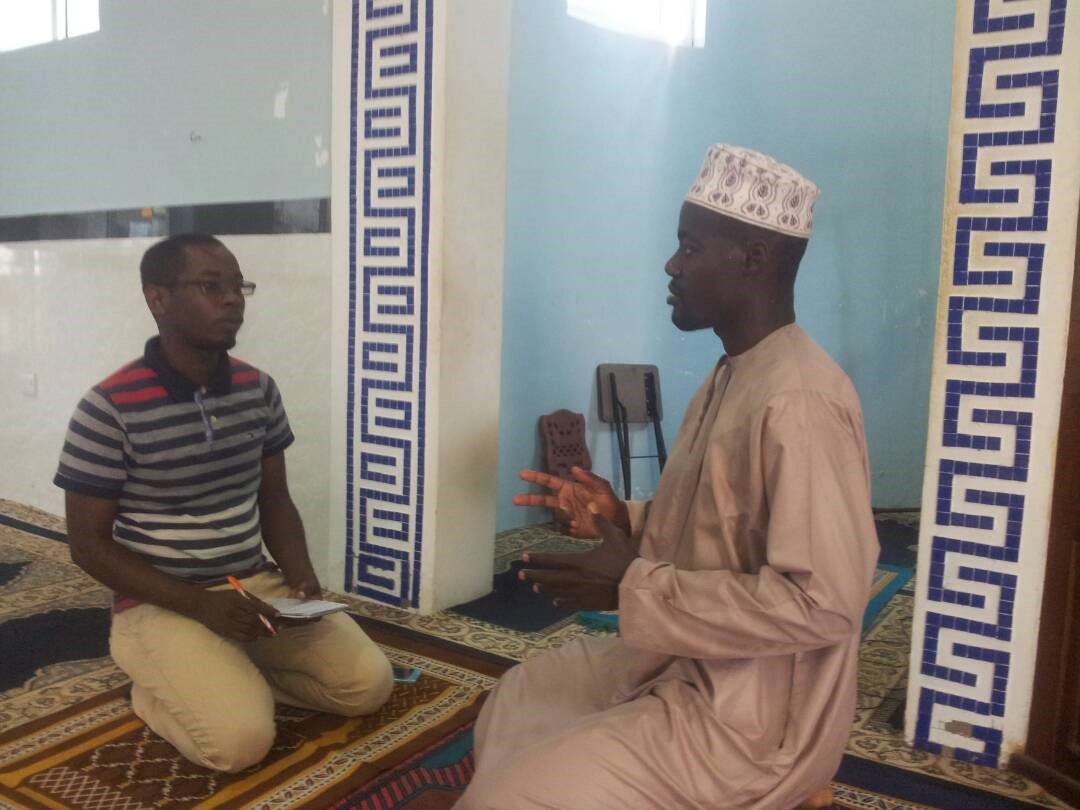
Despite the significant effort of the Zanzibar Ministry of Health and partner organizations to address these challenges, improvement and success has been hindered. Pemba is more rural and remote than other islands in Zanzibar and faces long distance to health facilities, limited transport (public transport stops at 5pm), and poor roads that are nearly impassable during the rainy season, making hiring private transport prohibitively expensive for many mothers.
Due to this remote nature, it is difficult for all residents to have easy access to a health facility. With the hilly topography and poor roads, even with private transport it is very difficult for drivers to access many of these remote areas of Pemba. This immense difficulty in reaching a health facility is one reason that many women instead choose to deliver at home. The most recent Tanzanian Demographic and Health Survey Data quantifies this difficulty: in Unguja (the other island of Zanzibar), 72% of women deliver in a health facility; in Pemba, facility delivery rates are only 51%.
Transport is not the only barrier to accessing services at health facilities. There is the widespread belief (and some evidence from data collected in our program) that skilled birth attendants are physically and verbally abusive; religious beliefs are very strong in Pemba, leading many women to feel shame and discomfort when being attended by a male doctor; and there is a significant shortage of staff at the facilities, leading to long wait times and difficult working conditions.
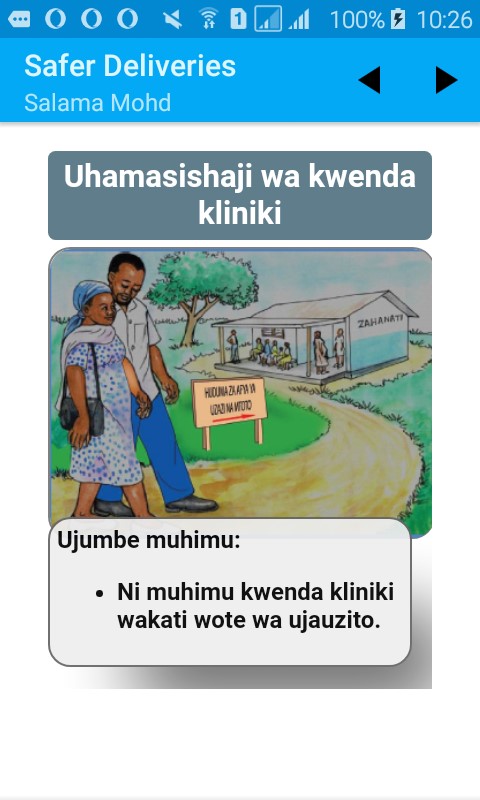
The Zanzibar Government has led a number of initiatives to help improve maternal and newborn health in Zanzibar, such as establishing a health facility every 5 kilometers and employing more staff to provide services. One of these initiatives, Safer Deliveries, is a collaboration with D-tree International to use digital technology to improve maternal and newborn health throughout Zanzibar. This program equips Community Health Volunteers (CHVs) with a mobile app to provide counselling on different issues such as malaria, HIV/AIDS, healthy eating, and sensitization approaches for expectant mothers and their families on facility delivery and the importance of antenatal and postnatal care.
After joining the Safer Deliveries program in Pemba, I started thinking through how we could better support CHVs using this digital tool to provide counseling to expectant mothers and improve maternal and child health. We decided to conduct sensitization meetings throughout Zanzibar with religious and local community leaders, traditional birth attendants, and CHVs. In most cases, expectant mothers and their families expressed negative perceptions of facility deliveries, with reasons varying from the perceived high cost, maltreatment of patients, and poor quality of services provided.
To combat negative perceptions of health facilities and mitigate the issues of poor roads, high cost of transportation, and lack of excess funds, the CHVs in the Safer Deliveries program talk to mothers and families about how to prepare themselves for a facility delivery by saving money, link the family with trusted and affordable drivers, and remind mothers about pregnancy danger signs to look out for. This was not an easy task, and CHVs were faced with many challenges when discussing these topics with families, but the sensitization meetings with district health management teams, imams, and influential local leaders, combined with the digital counselling support offered by CHVs, slowly started to change the perceptions and practices of women and their families in Pemba. (To learn more about “The Imam Engagement Initiative”, read our blog on the topic, found here!)
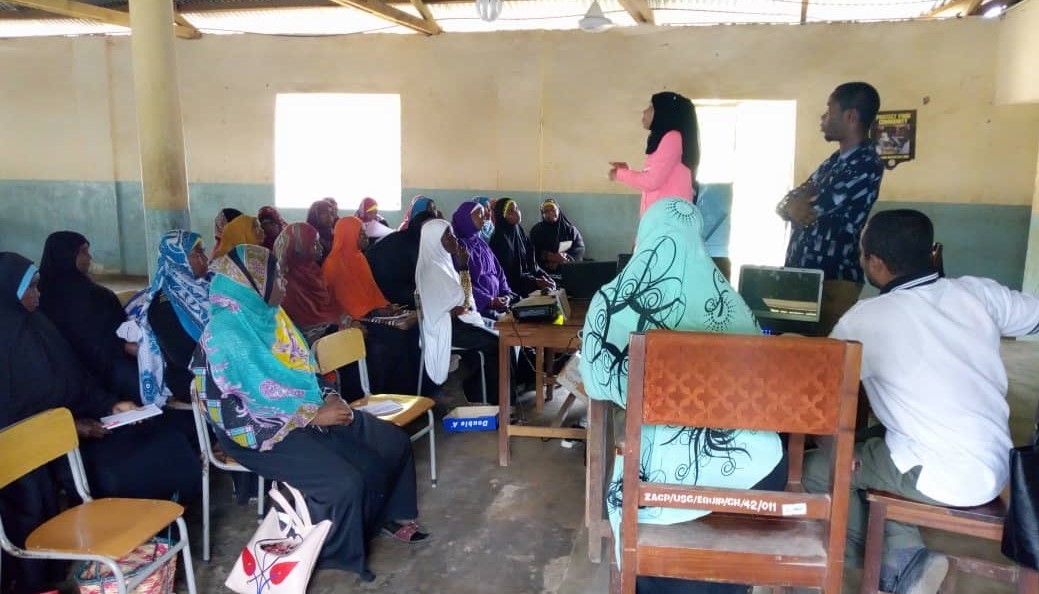
The following two stories were recounted from CHVs about counselling mothers enrolled in the Safer Deliveries program. These stories are just two examples of how CHVs can use digital tools to sensitize mothers and families to change their views on facility deliveries; adopt new health behaviors; and help make better decisions for the lives of mothers and babies.
CHV Bimkubwa Juma Hamad:
Fatma, aged 35 years old living in Kiungoni, Pemba, Zanzibar, was registered with the Safer Deliveries program after having delivered 8 children. Fatma delivered her 8 children at home without any complications, leading her family to believe that she would have no issues in her subsequent deliveries. After being registered by a CHV in the Safer Deliveries program, Fatma was offered services and counselling from the CHV using the digital decision support system, including sensitizing her to a facility delivery. It was a difficult task, but the CHV provided counselling to the family and mother, including giving the family real-life examples of delivery complications that had occurred in Fatma’s neighborhood. The family relayed rumors heard from others in the community of facility staff having bad attitudes towards the mothers, but the CHV never tired of trying to turn their negative thoughts to positive ones. At last the family members and mother decided that, when the time came, the mother would deliver at the facility, accompanied by their Traditional Birth Attendant (TBA) and the husband. The husband was happy as he came to realize that all the rumors on facility deliveries were wrong: “I have been told that I will pay for the services, but I did not pay, I only bought cleaning supplies.”
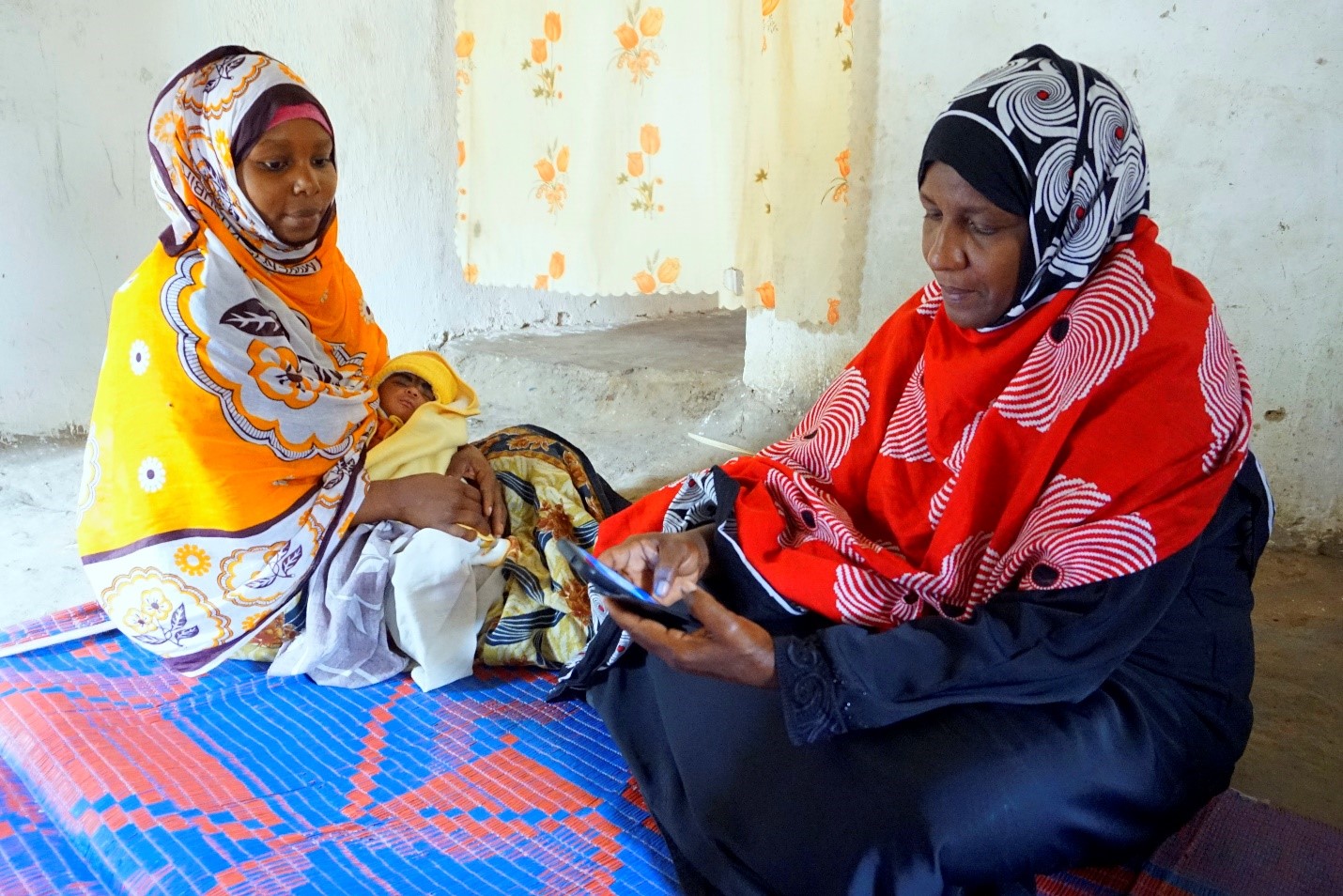
Bi Zume, a mother from Maziwani, Pemba, Zanzibar had delivered 4 times at home, believing facility deliveries weren’t helpful or necessary. However, after Riziki registered the mother in the Safer Deliveries program, she used the skills learned through program training and the digital tool to change the mother and family’s thoughts on facility delivery. “I never believed in facility deliveries. I used to call a Traditional Birth Attendant to help me deliver at home as I believed God could help me deliver safely, but once I heard others’ stories that Riziki (a CHV) recounted to me, I came to realize that what happened to others can also happen to me.” At last, the mother delivered her 5th child at the facility
I continue to be proud that the Safer Deliveries program has helped address many of the challenges that hinder facility delivery and improvements in maternal and newborn health in Pemba. I’ve been able to observe as CHVs equipped with digital support tools help to improve mothers and families’ awareness of facility delivery and reproductive health through sensitization activities done through the digital system.
Our data shows an improvement in facility delivery rates since the program started in Pemba including an increasing number of mothers who previously delivered at home, but decided to deliver at the facility due to the sensitization done by CHVs supported by digital tools in the Safer Deliveries program.
